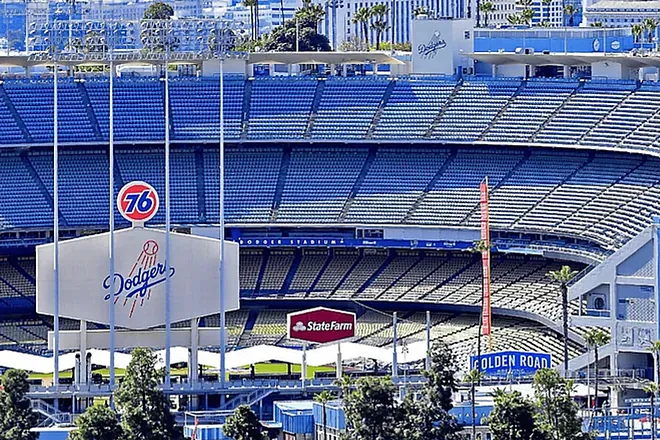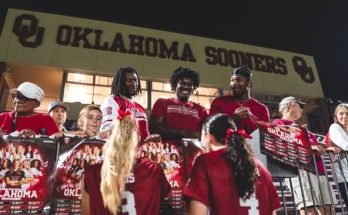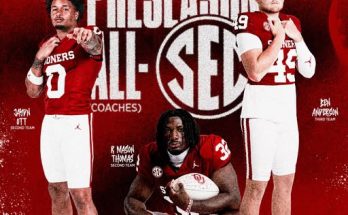In recent weeks, the Los Angeles Dodgers have unexpectedly found themselves at the center of a federal flashpoint—not tied to on-field performance, but connected to rising concerns about federal agents and perceived prejudice. What began as routine immigration enforcement activity in Southern California quickly intersected with America’s beloved baseball franchise, thrusting the Dodgers into a charged sociopolitical debate that brings questions of race, identity, and civic responsibility to the forefront.
The controversy’s genesis occurred in mid‑June when a contingent of federal agents, reportedly with U.S. Immigration and Customs Enforcement (ICE) or Customs and Border Protection (CBP), was seen congregating near Dodger Stadium. Witnesses described unmarked SUVs parked outside the stadium’s Gate E entrance, their occupants dressed in paramilitary gear and with faces obscured. Video footage and on‑site eyewitness reports spread across social media, triggering alarm among fans and immigrant communities claiming the presence evoked anxiety and fear. The Dodgers organization soon issued a statement: federal agents had requested access to team parking lots, and the team had refused. Officials from the Department of Homeland Security later responded, stating that CBP vehicles—unrelated to enforcement operations—had only briefly stopped in the area (washingtonpost.com).
Still, for many this was more than a bureaucratic back and forth. Los Angeles has become ground zero for intense federal immigration sweeps in recent weeks. ICE has conducted raids targeting workplaces like car washes, Home Depots, and wholesale outlets, reportedly making thousands of detentions daily (washingtonpost.com). These efforts, rooted in federal policy directives, have ignited mass protests, tear gas incidents, and community outcry in neighborhoods largely populated by Latino and immigrant families.
The Dodgers, as one of Southern California’s largest institutions, with nearly 40 percent of its fan base identifying as Hispanic or Latino and drawing many immigrant supporters, was quickly pulled into the debate. Activists and fans called on the team to take a stand, asserting that silence from such a powerful platform amounted to complicity. When federal agents appeared near the stadium on June 19, some protesters physically blocked entrances and chanted against ICE presence .
Under mounting pressure, the Dodgers responded. Team leadership reaffirmed that federal agents had been denied access to the property. More significantly, they announced a $1 million donation to support immigrant families impacted by recent raids. The funds are earmarked for legal aid, mental‑health services, rent and utility assistance, and other essential needs in coordination with local nonprofits (apnews.com). In expressing solidarity with immigrant communities, the team avoided explicit political posturing, instead framing the contribution as humanitarian support.
The announcement carried symbolic weight. Dodgers President Stan Kasten acknowledged that the team recognized its responsibility within the broader community: “We heard the calls for us to take a leading role,” he said (apnews.com). The donation was welcomed by local advocacy groups, who emphasized that families affected by immigration sweeps need immediate charitable help—legal counsel, mental‑health care, rent assistance—and that the Dodgers’ financial commitment would make a tangible difference .
Dodgers players and personnel also became vocal. Outfielder Kiké Hernández, originally from Puerto Rico, took to Instagram to express his dismay: “I am saddened and infuriated by what’s happening in our country and our city… ALL people deserve to be treated with respect, dignity and human rights” (washingtonpost.com). Manager Dave Roberts, often circumspect in political discourse, admitted he found the raids “unsettling” and acknowledged the team couldn’t ignore mounting community unease (washingtonpost.com).
A striking symbolic moment occurred when Nezza, a singer and social media influencer, defied team protocol by performing the national anthem in Spanish before a Dodgers game. Wearing a Dominican Republic shirt, she faced pushback from team staff, but stood her ground, singing “El Pendón Estrellado”—a choice that drew both tears and cheers. She later said it was essential to represent and uplift communities under siege—even if it clashed with stadium rules (washingtonpost.com). Her act galvanized support from fans who argued that telling her not to sing in Spanish amid immigration sweeps amounted to cultural erasure.
The Dodgers’ refusal to allow federal agents on team property—even for a short time—mirrors a broader tension between local and federal authorities. California’s government, including Governor Gavin Newsom and Los Angeles Mayor Karen Bass, has openly condemned massive immigration sweeps as fear‑mongering and harmful to community cohesion . In this environment, the Dodgers’ stance is more than symbolic. The team effectively provided a protective buffer for its fans and employees by barring law‑enforcement presence and reallocating financial resources to assist affected families.
Yet the response has been met with criticism too. Some conservative voices argue that the team overstepped, allowing politics to infiltrate sports and undermining immigration enforcement—efforts they regard as lawful and necessary. ICE has refuted suggestions that agents were blocked from stadium grounds, contending they were never there to enforce anything . Critics further contend that the donation and public statements create political theater rather than meaningful policy change.
Still, for the Dodgers, this episode isn’t just about politics. This is a baseball organization deeply embedded in the cultural fabric of Los Angeles, a city where immigrants have long been essential to the economy and everyday life. The team clearly recognizes that aligning with immigrant communities isn’t merely public relations—it’s personal. Many employees, players, coaches, and fans are directly affected by the federal enforcement campaigns. From a public‑relations perspective, the team strides through complicated terrain: demonstrating empathy and solidarity risks alienating some fans, but silence risks alienating an entire cultural community from whom the franchise draws essential support.
The $1 million pledge constitutes only part of the Dodgers’ broader outreach. They have committed to partnering with organizations like the California Community Foundation and the Los Angeles County Federation of Labor. Through these groups, funding will be channeled to grassroots-level legal clinics and mental-health providers. But critics argue that the Dodgers, with multi‑million-dollar payrolls and billionaire ownership, should go beyond charitable giving and advocate for concrete policy reforms—or even use their influence to lobby federal lawmakers.
At the heart of this controversy sits the question of whether a sports team should wade into matters of national policy. Traditionalists believe baseball should be a refuge from political conflict, a neutral common ground. But in an increasingly polarized society, few institutions retain that luxury. Corporations, sports franchises, and celebrities are all weighed in public discourse. For the Dodgers, the calculus may be simple: maintaining a neutral stance is not neutral with a fan base that’s feeling threatened. And silence may be louder than words.
Complicating matters is the wave of public pressure from fans and civic leaders. A petition spearheaded by local unions and civic organizers demanded that the Dodgers “condemn ICE raids” and ensure federal agencies don’t use team spaces for enforcement efforts. Signatories argued that the team’s Latino fans “deserve more than silence” as they contribute significantly to the franchise’s revenue and cultural resonance (apnews.com, washingtonpost.com). Similarly, Mayor Bass praised the initiative, stating that this kind of leadership “helps unite the city” during trying times (apnews.com).
This tug‑of‑war illustrates a broader shift in expectations for high‑profile institutions. The Dodgers, like other teams in Los Angeles, are no longer just entertainment—they’re civic actors. Their decisions reverberate far beyond the playing field. The team’s stand—in practice and in philanthropy—now joins a growing list of social stances by sports franchises, from activism in racial justice to labor rights and environmental causes.
The Dodgers’ current journey also highlights the interplay between local governance and federal authority. California casts itself as a sanctuary state, establishing policies to shield residents from aggressive deportations. Meanwhile, the federal government, driven by executive policy priorities, has doubled down on immigration enforcement. A baseball stadium—a community gathering place—has become a proxy battlefield. The Dodgers’ refusal to concede their land for enforcement operations, while donating millions to affected families, is both a practical and symbolic assertion that immigrant communities matter, and that local institutions can claim agency even when federal power looms.
Looking ahead, the Dodgers face several challenges. They’ll need to ensure that their financial support translates into real outcomes—legal aid, psychological assistance, housing security—for families still grappling with detention or court dates. They’ll also have to continue balancing their public messaging to avoid being painted as partisan actors, which could alienate portions of a politically diverse fan base. If federal authorities return to the area, the team may face renewed tension between refusing access and staying within the bounds of legal compliance.
More broadly, the Dodgers’ experience may serve as a case study for other sports franchises and major institutions navigating similar terrain. More than any other city, Los Angeles is a mosaic of different cultures, backgrounds, and political leanings. At this moment, the Dodgers have decided that standing alongside immigrant families is worth the potential backlash. Whether that earns them lasting goodwill, or controversy, depends on how they follow through.
In that sense, this episode transcends baseball. It’s about how one team grappled with the collision between national immigration policy and local community identity. It’s about who gets to step onto the field—the team, the fans, federal agents—and under what authority. And it’s about whether institutions can choose humanity over neutrality when a large segment of their base is under threat.
If courts were to ultimately weigh on this matter—perhaps over allegations of property interference or misrepresentation of federal actions—it would reshape legal understandings of civic authority. As of now, there’s no lawsuit lodged. But if combined with local protests and strengthened by federal property statutes, these events could form the foundation for legal scrutiny. Federal lawyers might question whether the team’s refusal to cooperate with federal agents was lawful; local activists may argue that the refusal protected vulnerable communities from intimidation. That tension between civic sanctuary and federal authority could soon be tested in court.
In that regard, the Dodgers have unwittingly positioned themselves as both a community shield and a legal bellwether. For now, the philanthropy and the defiance are seen more as hearts-and‑minds campaigning. But as tensions between federal and local jurisdictions deepen, and as sports teams become civic flashpoints, this may be the first inning of a much longer season—one with legal, political, and cultural innings ahead.
For fans, the lesson may be straightforward: in a border city, sports teams are not just entertainment—they’re part of the social fabric. For policy watchers, this is a moment to observe how national power meets local sentiment. And for the Dodgers, it’s a test—whether a franchise built on tradition and fandom can evolve into a symbol of bold civic leadership, without losing itself in the process.
Only time will tell how far the Dodgers will swing in this off‑field inning. What remains clear is this: a franchise once known for its clay, leather, and culture is now inextricably tied to the fate of families facing deportation. And in doing so, the Dodgers are grappling with questions far bigger than baseball.



